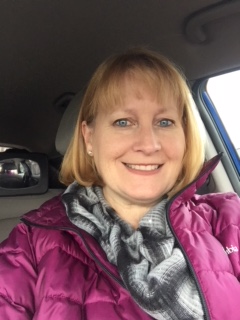
How many of us make New Year’s resolutions only to get to the end of January and realize we have already quit trying? Making resolutions is mentally exhausting and can lead to increased depression at the beginning of each year. Dr. Lindsey Israel (2019) writes, “It’s time to have hope that this year will be better, and hope starts with a plan.” (para 2). We certainly need hope right now as we come out of a pandemic that I don’t think any of us ever thought would occur in the first place, let alone last for years on end. Think of some small goals you can set that will help to focus your efforts both professionally and personally.
Working in education requires a lot of planning. We want our students to be successful at learning and understanding the concepts we teach. How do we do that in a way that is both creative and evidence-based? Maybe you have taught the same course for several years. The material is beginning to feel a bit dry. Just think about this…if it feels dry to you then it most certainly will to your students. What goals can you set in order to improve your course, as well as your enthusiasm?
Before each semester I review my courses and student evaluations to see what improvements I can make. Some semesters it is minor things such as clarifying the directions for an assignment or rearranging the lectures. In other semesters I do a complete overhaul and develop new learning outcomes with assignments to meet those outcomes. I like to set goals for myself and I encourage my students to do the same.
Setting Goals
A few semesters ago I began using Graphic Organizers in my Mental Health Nursing course. This is a first-semester course that requires a lot of reading and focus to study the material. I explained to the students that these organizers were being implemented to help them, not me. I suggested that they look at weekly material that was unclear or confusing as a place to begin using this chart. Some students did minimal work on the organizers, and others were detail-oriented and really began to embrace this new method of studying.
The organizer has a section for students to type in questions they have about the material they chose to discuss. I made it my goal to answer these questions each week for all 42 of my students. This was time-consuming but ended up being really fulfilling as I got to know my students on a 1:1 level. They shared their private thoughts about some really serious topics. They asked questions that I actually had to research in order to answer. I smiled a lot while I read their weekly Graphic Organizers.
At the end of the semester, students had a journal entry to submit. One of the questions they had to answer was how did they like using Graphic Organizers. Most students reported that this tool had been surprisingly helpful and 79% intended to continue using this tool in future nursing courses. Trying something new ended up being really beneficial to everyone in my course.
If you have never been a goal-setter why not make 2023 your year to shine? Goals help us focus on things we would like to accomplish, either in the short or long term. Goals can be as simple as updating your course or as difficult as returning to school for a terminal degree. A goal should be challenging but not so challenging that it becomes daunting. There should be an excitement factor to any goal you set for yourself, meaning that it makes you feel good thinking about all the possibilities reaching that goal might make in your life.
A goal is meant to help you focus your efforts as you work towards whatever that endpoint may be. Where resolutions are more about an act of doing or stopping something (i.e. losing weight or stopping smoking), goals are a work in progress. A goal can start as one thing and gradually change to another. It is a way to grow as a person and even as a human being.
When I talk to my students I ask them what goals they have set for themselves. I listen to their answers and then ask how they foresee getting to those goals. It is great to say, “I am going to be financially independent by the time I am 25,” but how do you plan to make that happen? Actual goal setting involves critical thinking, planning, and implementation.
Making Lists
I am a big proponent of making Pros vs. Cons lists. This helps me to work out problems in my mind. It takes the nebulous thoughts floating around in my brain and puts them on paper where I can see how the parts fit together. This process helps me “see” if my goal is actually realistic. Is it something that I really want to work towards? Or do I scrap it and start over?
Goal-oriented people work in a more focused manner. They have a plan for how they want to get to a certain point, either professionally or personally. Don’t be afraid to set realistic goals. You may end up finding that you have a lot of interest in a particular topic and you set the goal to learn as much as possible about that topic so that you can share it with your students. I find that when I become enthusiastic about topics I am teaching that enthusiasm spills over to my students.
Goals with Meaning
The past two years have been very challenging to everyone due to the pandemic. The goals we had may not have come to fruition due to changes in the economy, our work schedules, illness, and isolation. This doesn’t mean that those goals will never happen. It may just mean that you need to set those goals aside for a bit until you are able to work on them again.
I challenge you to think about some goals that have meaning. Just as I added the Graphic Organizer to my course, you can be creative with your goals. What have students asked about that might lead to a goal for you as an educator? Previous students had expressed difficulty with their study habits. I listened and set this goal of adding a new assignment and then answering all the student questions each week. I could have easily just graded the assignments but not answered the questions. By taking the time to give each student thorough feedback, I gave them personalized information that fit their needs.
Indeed.com (2020) posted an article that listed some professional development goals. “Active listening, cultivate resilience, learn new things, and meet new people” (para 15) are relatively simple goals that YOU can apply to your own professional life. They all apply to nurse education. Active listening is a therapeutic communication skill that is taught at the basic level of nursing. Maybe you have realized that you haven’t really been listening to others so you choose this goal as a way to make yourself more available to them.
Right now, cultivating resilience is very important to everyone’s mental health. We can lead by example by showing friends, family, and co-workers how to move forward through social distancing practices, while still making meaningful connections with others. And, learning new things is something that every nurse educator should be doing, always. Learning new things keeps us interesting. It has always been one of my pet peeves to hear someone say, “But, we have always done it this way.” Step outside your comfort zone, learn something new, and share it with others. This is certainly not limited to the field of nursing.
Spark excitement in those around you for setting their own goals as we move into 2023. Show them how being positive can enhance their lives in ways they never imagined. Set the goal of engaging your students in a new way of learning. You may find you learn something new in the process. I know I did.
Now where did I put my sneakers? I am going for a walk to meet new people.
References:
Indeed.com. (2020). How to set personal development goals for work (with examples). https://www.indeed.com/career-advice/career-development/personal-development-goals-for-work
Israel, L., (2019). 5 New Year’s resolutions for depression. https://www.nami.org/Blogs/NAMI-Blog/January-2019/5-New-Year-s-Resolutions-for-Depression



